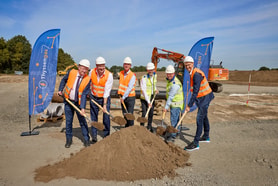UPDATE: Put CCS at centre of Net Zero battle, urges former UK Prime Minister
Carbon capture should be “the centre of the battle” in fighting climate change and delivering Net Zero, according to a new paper from former UK Prime Minister Tony Blair.
Writing for his eponymous think tank, The Tony Blair Institute for Global Change, he said, “At present, carbon capture is not commercially viable despite being technologically feasible – but policy, finance and innovation would change this. The disdain for this technology in favour of the purist solution of stopping fossil-fuel production is totally misguided.”
The paper underlines a widely accepted truth that fossil fuels will remain key to delivering growth for developing and developed countries, despite the ongoing ramp up of renewables – which he said should continue as it is necessary and cost effective.
But present policy solutions are inadequate to meet the levels of growth and development, and the paper argues that governments are distorting the debate into a quest for a climate platform that is unrealistic and unworkable.
... to continue reading you must be subscribed
























